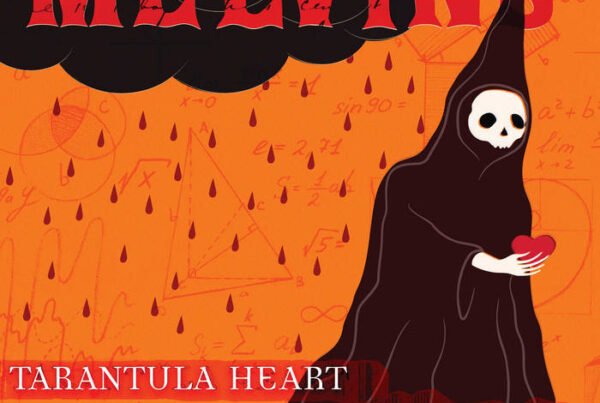My early years of listening to metal were sufficiently cliché. I first traversed the expansive genre with my introduction to Metallica and Megadeth, and soon I found myself loving everything about thrash metal. The aggression was attractive to me, and I became absolutely enthralled with checking out as many bands as I could find. Strangely enough, my infatuation with all of these classic heavy artists birthed my enjoyment of a different subgenre. In the late 2000s, I saw Unearth opening for Testament, Killswitch Engage opening for Slayer, and Lamb of God opening for Metallica. Each of these bands managed to introduce me to my new interest: metalcore.
About ten years removed from my initial discoveries, my overall interest in metalcore has dwindled, but Misery Signals have quickly reminded me of what was so fascinating about the genre. The band originally caught my attention with their ability to seamlessly combine emotional melodies with immense brutality. Their new album Ultraviolet continues with the band’s legacy, but also shows growth and maturity. This album will be incredibly special to fans from the early days, as it is their first record since their debut full-length Of Malice and the Magnum Heart to include the entire original line-up!
Ultraviolet starts strong with the album’s first single, “The Tempest”. Right out of the gate, Misery Signals begin a relentless onslaught of intensity that seems unparalleled when compared to other modern metalcore releases. As powerful and skilled as the instrumentation is, I must admit that the vocals steal the show. The return of Jesse Zaraska is notable, especially because his vocal style is absolutely flawless for this style of music. “The Tempest” sets the expectations high for the rest of the record, proving that the veteran band haven’t lost their charm.
I feel as though Misery Signals have gained the necessary mastery over the formula that has garnered them success; throughout all of Ultraviolet, you can obviously tell that the music you are listening to is metalcore at its finest. Tracks like “Old Ghosts” effortlessly blend incredible melodic content in the introduction and bridge with heavy moments when the vocals come through. While most of the album’s vocals are harsh, there are a few moments where clean vocals are utilized. Other bands may feature clean vocals to create a poppy refrain, whereas Misery Signals use them to give depth and layers to their music. Songs including “The Fall” and “Redemption Key” have sections featuring ambient clean vocals, but they never seems overdone. The album focuses more on delivering quality and sophisticated metalcore, rather than searching for ways to make it feel more mainstream.
The band certainly did a great job picking out singles, as “River King” is easily one of my favorite songs from the album. The track starts with a far more subdued tone, causing me to expect a spoken word section akin to bands like La Dispute and mewithoutYou. However, when the band comes in fully, they hit hard. Much of the song takes on traditional hardcore elements, delivering an impactful journey that showcases a lot of intensity but also makes use of dynamic shifts. The track culminates in my favorite breakdown of the album. Each time I hear it, I can’t help but move my head a bit. It gives me that same classic feeling of adrenaline that I would experience when I heard my first breakdowns. Ahh, the wonderful nostalgia!
My favorite track on the album is “Cascade Locks”; its first minute alone contains one of the most beautiful instrumentals on the album. The song is technical, melodic, and astonishingly dynamic. It is one of the most interesting tracks on Ultraviolet, as it contains many different elements that all come together into a cohesive unit. I dislike when metal bands write music that sounds like a bunch of differing riffs compiled into one song. This method becomes quite drab and monotonous, but Misery Signals compose music that has a proper flow and thus doesn’t fall into the same traps other artists might.
Ultraviolet is a necessary listen for any metalcore fan. The album is a breath of fresh air and displays Misery Signals in a highly beneficial way. It’s wonderful to hear the original line-up back together, and it doesn’t feel like a single track on this album is forced. This reunion allowed for an experience that I truly appreciated, especially since I haven’t been listening to many metalcore releases lately. If Ultraviolet is an example of how Misery Signals will continue in the future, I know that I’ll certainly be excited for more.






